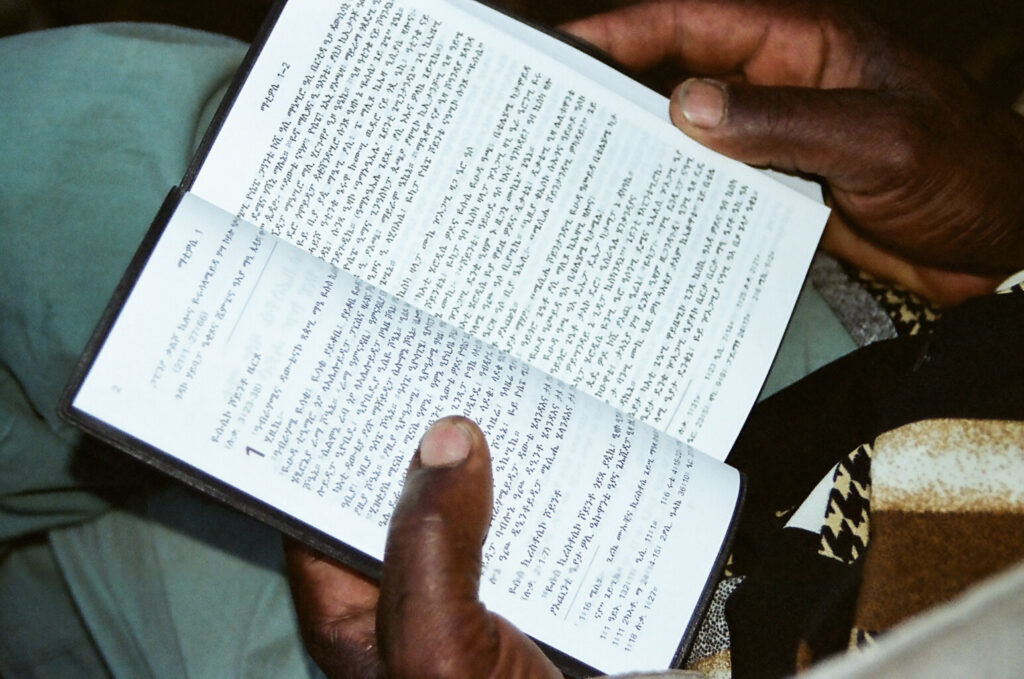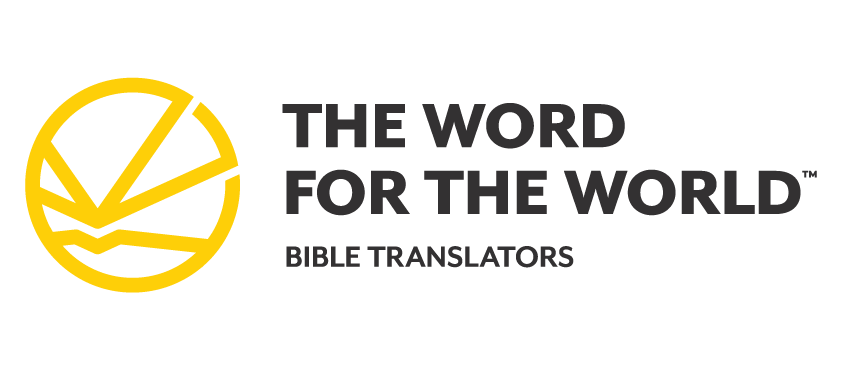“I stand at the gate and call out”. Imagine living in a village where the houses do not have doors. When you visit someone, there is no door to knock on or doorbell to ring when you arrive. Imagine houses with open doorways and a garden path that leads to a front gate made of bamboo or reeds. What use would your community have for the word or the concept of ‘door’? A community living in Ethiopia, called the Maale people, live in such a place. Their language does not include the word or concept for ‘door’. If you were a Bible translator living in that community, how would you translate Revelation 3:20: “Here I am! I stand at the door and knock. If anyone hears my voice and opens the door, I will come in and eat with that person, and they with me“?
During November and December, we are looking at what it is like to be a heart language Bible translator and to get in their shoes in order to understand what it takes to be a translator. In order to get a feel for their work, it is helpful to understand some of the blessings they enjoy and the challenges with which they grapple. The Scripture mentioned in the first paragraph is an example of one of the challenges many translators face in creating an accurate and natural translation. The Maale translators solved the Revelation 3:20 challenge by creating this translation: “Here I am! I stand at the garden gate and call out to the person in the house. If anyone hears my voice and opens the gate, I will come in and eat with that person, and they with me“. In Maale culture, when someone visits another person’s home, they stand at their garden gate and call a greeting to the person inside the home. Therefore, this translation is natural and understandable to a Maale speaker. This beautiful example of how a mother-tongue speaker who has grown up in their culture shows that indigenous people are best equipped to translate the Bible into their own language and solve the vocabulary challenges that come up.

The Word for the World believes that the best people to translate the Bible into any language are the people who grew up speaking that language. There is a difference between the process of translating that an expatriate or ‘other-tongue’ translator uses when working on a translation project in a language that is not their own, compared to a mother-tongue speaker’s process of translation. The mother-tongue translator has a natural intuition for what is most acceptable in their language. One of the remarkable blessings is how God stirs up the desire to translate the Bible in the translator’s heart. Becoming a translator begins with a vision, and that process happens uniquely in each translator’s faith walk with God. Sometimes, the vision will come to the fore because of the cry of the hearts of a community of Christians who want the Bible in their heart language. Other times, it could be a minister or evangelist who longs to have the Bible in the mother tongue of the people to whom he or she is ministering. True vision is given by God and becomes a passion in the heart of His children.
For the Roma Bible translators in Eastern Europe, this passion shines brightly. Marjan Macic, Goran Sajitović and Michael Bečvar are busy working on the Gurbet translation, which is one of the three main dialects of the Roma language. On the Arli translation team are three translators: Saša Bakic, Nikola Kamberović and Marek Gombar. They are passionate about seeing God’s kingdom expand within the global Roma community. Nikola remembers that when he first thought about becoming a translator, he realised that it would be a long process of about 10-15 years – quite a commitment! At the time, he had moved to a different city to study education which was very meaningful for him. He explains, “Roma people in general are not very well educated and are often discriminated against in society, in school and in job opportunities. They often miss out on the chances to go further because of this lack. Even if they finish high school, they many times do not find jobs, because they are Roma“.
Nikola’s first inspiration was that he wanted to make a difference in his community by being an example. He wanted to become educated to encourage others and show them that it is possible for Roma to get a good education and build meaningful careers. While he was studying, he felt moved to pray and ask God how He wanted to use him. He had no idea at the time that God had already been preparing him for things of which he was not even aware. He and his wife felt God could use them more, and so together they sought the Lord. He had heard of a Romani Bible translation project, but had always thought, “Wow, that’s very big stuff to translate the Bible for the Roma people!” Then one day, he was at a youth camp and Saša approached him and invited him to consider working as a Roma Bible translator. His heart burned within him, and he said, “I would love to! But we must pray“. He and his wife prayed that God would confirm the calling, which the Lord did very soon after that experience. He was thrilled to be part of such an enormous work – especially for the Roma people about whom he cares so much.

For Marjan, that vision for Bible translation came when he was working one day, and a man involved in translation work came into his workplace. They began chatting in their mother tongue of Gurbet and that man noticed how well Marjan communicated. He told him about mother-tongue Bible translation work and invited him to think about being trained to do that work. He and some other translators had been praying for the Lord to provide some Gurbet mother-tongue speakers. This was amazing to Marjan because he and his wife had been praying and asking God for direction! He was happy in his work as a forklift driver and everything was going well; however, he had a sense that his time was up in that work, so he was seeking God for what He wanted him to do. He went on to respond to God’s lead and began the Diploma in Bible Translation course. Now he is a full-time translator and balances many other responsibilities alongside this wonderful work.
Like the Maale translation of ‘door’, the Roma translators experience similar difficulties. The Roma language does not have many of the words that are in the older Serbian Bible translation, and sometimes it can take up to an hour to translate just one particularly tricky verse. For example, in Roma there is no word for ‘desert’. So, they had to find a word in Serbian to describe desert and came up with ‘A place where there is nothing.’ Once they find a suitable translation, they then check with the local community to see if it is easy to understand and if it makes sense to them. The process of community checking goes back and forth as they fine-tune words and concepts that are not in the Roma language, but can be explained another way. It is eye-opening to learn about how God calls many mother-tongue Bible translators, and exciting to notice just how much prayer usually is part of that beginning!
As we learn more about their work, we thank God for His provision of passionate men and women who have a heart for their communities and are putting their gifts into action for the benefit of the body of Christ.

That was really interesting to read about how mother tongue is different from a direct translation.
Keep up the fantastic work so that more people can understand what God is saying to them.
Every blessing,
Chris